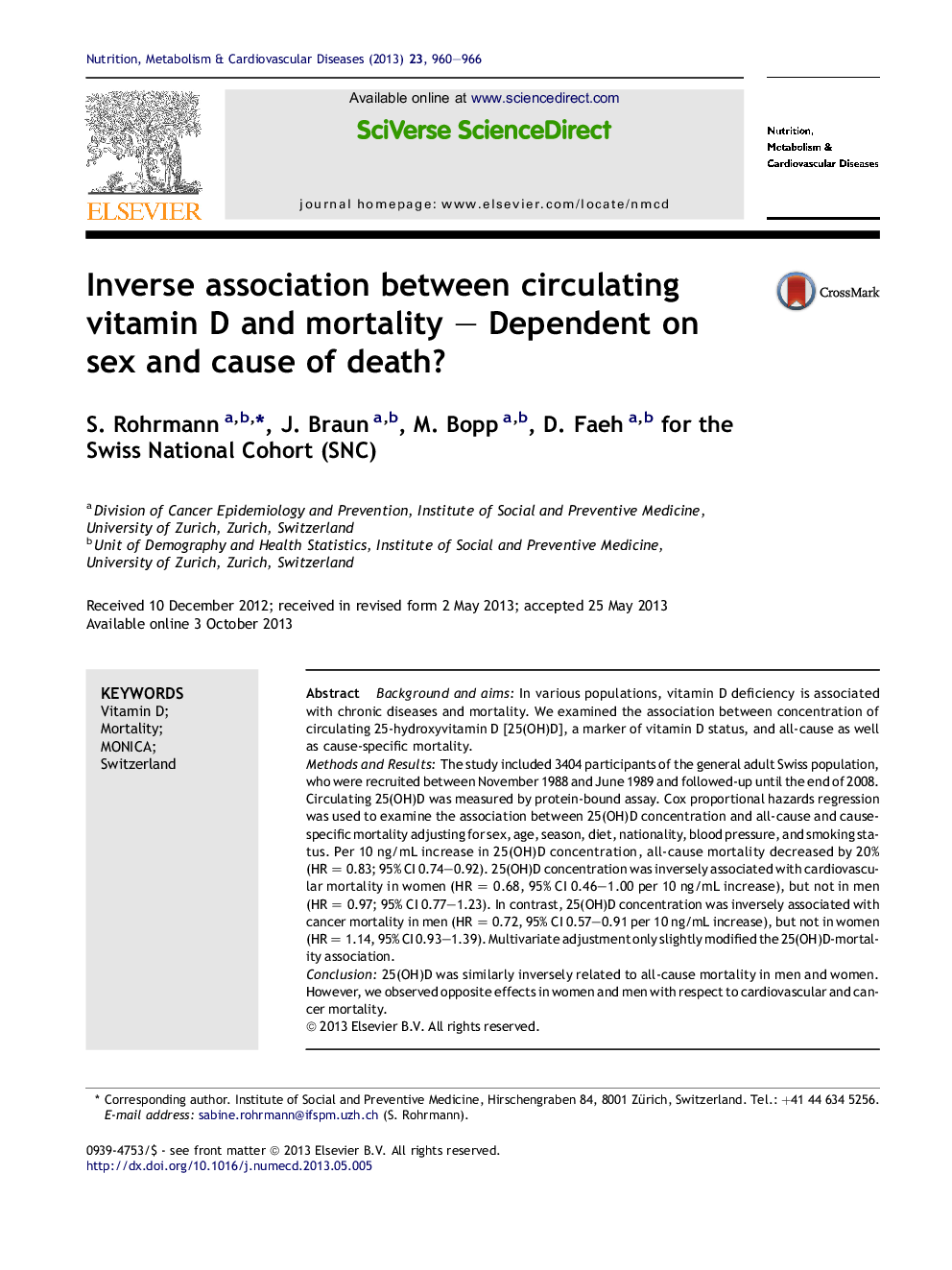| Article ID | Journal | Published Year | Pages | File Type |
|---|---|---|---|---|
| 3002258 | Nutrition, Metabolism and Cardiovascular Diseases | 2013 | 7 Pages |
Background and aimsIn various populations, vitamin D deficiency is associated with chronic diseases and mortality. We examined the association between concentration of circulating 25-hydroxyvitamin D [25(OH)D], a marker of vitamin D status, and all-cause as well as cause-specific mortality.Methods and ResultsThe study included 3404 participants of the general adult Swiss population, who were recruited between November 1988 and June 1989 and followed-up until the end of 2008. Circulating 25(OH)D was measured by protein-bound assay. Cox proportional hazards regression was used to examine the association between 25(OH)D concentration and all-cause and cause-specific mortality adjusting for sex, age, season, diet, nationality, blood pressure, and smoking status. Per 10 ng/mL increase in 25(OH)D concentration, all-cause mortality decreased by 20% (HR = 0.83; 95% CI 0.74–0.92). 25(OH)D concentration was inversely associated with cardiovascular mortality in women (HR = 0.68, 95% CI 0.46–1.00 per 10 ng/mL increase), but not in men (HR = 0.97; 95% CI 0.77–1.23). In contrast, 25(OH)D concentration was inversely associated with cancer mortality in men (HR = 0.72, 95% CI 0.57–0.91 per 10 ng/mL increase), but not in women (HR = 1.14, 95% CI 0.93–1.39). Multivariate adjustment only slightly modified the 25(OH)D-mortality association.Conclusion25(OH)D was similarly inversely related to all-cause mortality in men and women. However, we observed opposite effects in women and men with respect to cardiovascular and cancer mortality.
